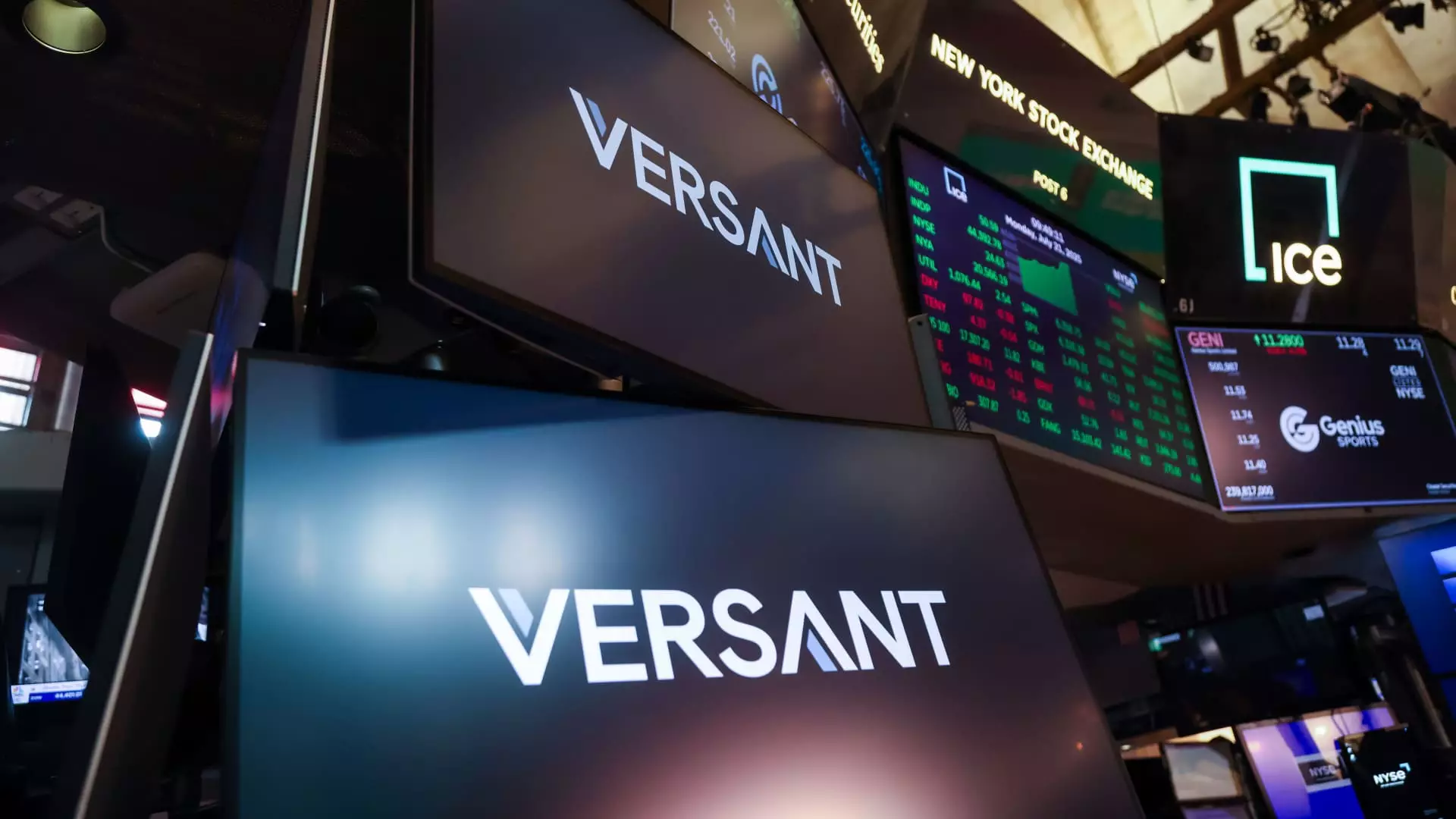The announcement of Comcast’s impending spinout of its cable networks into Versant signals a pivotal shift in the landscape of media and entertainment. This move isn’t merely corporate restructuring; it embodies a strategic recalibration aimed at capitalizing on niche content, digital assets, and a diversified board that reflects a broader industry mandate. While industry observers might see this as an opportunity for enhanced agility and focus, an underlying concern remains: does this separation genuinely empower Versant to innovate, or is it a facade that preserves old hierarchies? The inclusion of seasoned executives from diverse backgrounds hints at an attempt to foster fresh perspectives, but whether those perspectives translate into real market disruption remains to be seen.
Beyond the Surface: Analyzing the Board Composition
The roster of Versant’s leaders reveals a deliberate blend of media veterans, financial strategists, and tech innovators. Mark Lazarus, with his extensive experience at NBCUniversal, presumably brings institutional knowledge, yet this continuity risks locking Versant within a familiar comfort zone. Conversely, figures like David Eun and Rebecca Campbell introduce fresh momentum—Eun with his background in AI and tech innovation, and Campbell with her Disney tenure, suggesting an understanding of international and content-focused dynamics. However, a critical eye should question whether these appointments are genuinely transformational or merely symbolic gestures. The presence of financial and legal professionals underscores a cautious approach, possibly aiming to safeguard against overreach or missteps.
The Underlying Intent: Growth or Preservation of Power?
On the surface, this spinout appears designed to unlock value, attain strategic independence, and reframe the company’s digital and content assets. Yet, the true motive seems intertwined with Comcast’s desire to maintain influence over a lucrative portfolio while appeasing investor calls for nimbleness. The plan to spin off CNBC and the cable networks under Versant’s umbrella could be a way for Comcast to offload operational risks without relinquishing control—an astute move for a company wary of disruptive competitors in the digital era. Moreover, part of the rationale for this separation might be to position Versant as a potential acquisition target or a more attractive entity for future growth, rather than a genuinely disruptive force capable of challenging streaming giants or reinventing traditional media.
The Risks of Entrenching Legacy Paradigms
Despite the promising mix of board members, a fundamental issue persists: the media industry’s inertia. Many of Versant’s assets, including NBCUniversal’s cable networks, are rooted in a traditional advertising-driven business model that is rapidly becoming obsolete. The risk is that the spinout, rather than serving as a platform for innovation, merely cements the dominance of legacy media formats under a different corporate roof. While the inclusion of tech-savvy advisors suggests an intent to innovate digitally, it remains uncertain whether Versant will truly embrace the paradigm shift toward audience-centric, digital-first content. Without radical change, this move might resemble a corporate rebranding that fails to address fundamental industry evolution.
Implications for Competition and Consumer Choice
From a broader standpoint, Versant’s spinout could tighten the grip of legacy media conglomerates, reducing competitive pressure and limiting consumer choice. By carving out a specialized unit but maintaining overarching influence, Comcast may be consolidating its power rather than democratizing media ownership. This consolidation risks fostering an environment where innovation is stifled by internal politics and risk aversion, particularly as Versant’s leadership appears to be rich in corporate experience but potentially lacking in disruptive vision. For consumers, this could translate into fewer innovative offerings, higher prices, and less variety, especially in an age where digital platforms are already shifting consumer expectations.
A Cautionary Outlook
In sum, while the formation of Versant represents a strategic pivot, it should not be mistaken for a revolutionary step forward. It is a calculated maneuver that, without significant cultural and operational reforms, might merely perpetuate the status quo under a new banner. The real test lies in whether the leadership assembled can challenge entrenched paradigms, embrace digital transformation unabashedly, and serve viewers with more daring, innovative content. Until tangible proof of such transformation emerges, this spinout risks being a corporate mirage—an impressive facade hiding the enduring influence of traditional media giants in a rapidly evolving industry.

